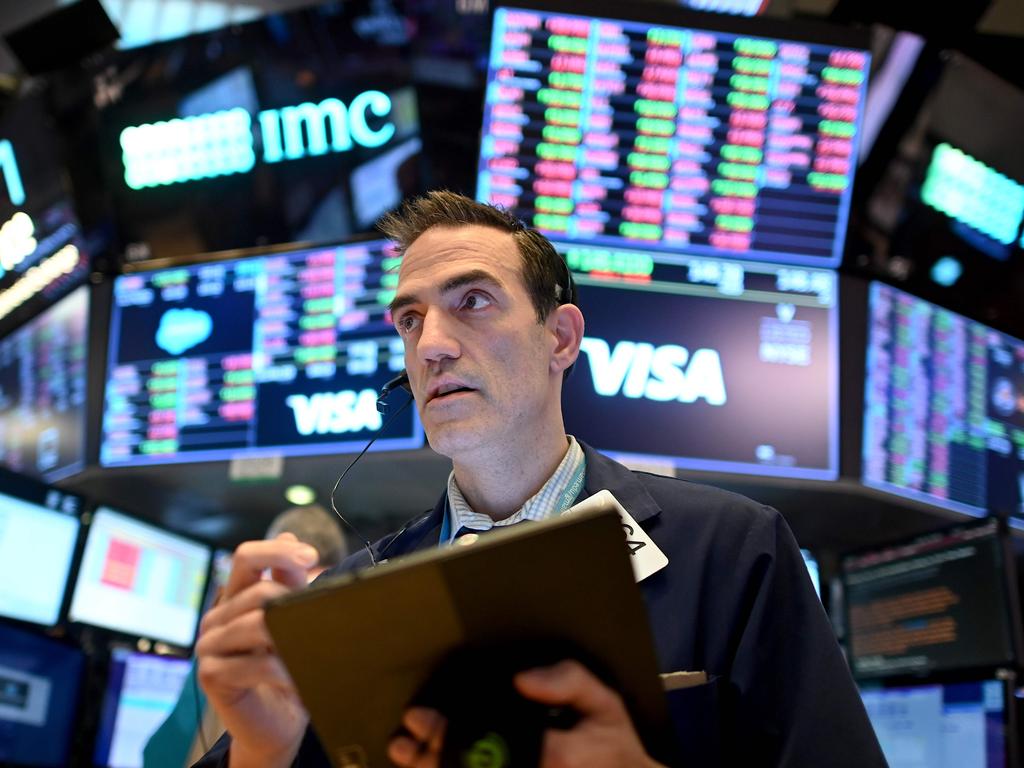Xi’s assault on leverage could hit China’s growth

The company, the world’s most indebted property firm with $US300bn ($411bn) in liabilities, said on September 22 that it had come to an agreement with bondholders on a coupon payment on an onshore bond due this week, easing some fears of an imminent collapse.
Analysts had been expecting the company to default on both yuan and dollar-denominated interest payments. On September 23 The People’s Bank of China injected more short-term liquidity into markets than it has since January, in a sign it was attempting to soothe concerns about an Evergrande default.
Far from being a well-managed process, Evergrande’s distress has been roiling markets around the world. Major indices in Europe and America fell on September 20 as Evergrande’s situation appeared to worsen. Yields on the dollar bonds of some Chinese borrowers outside the property sector have risen.
Hong Kong-traded shares in one Sinic Holdings collapsed by nearly 90 per cent on September 20th on fears that it would fail to repay a bond due in October. R&f Properties, another highly indebted group, has said it will raise up to $US2.5bn by borrowing cash from executives and selling a project.
Several institutions with high exposure to the property sector have suffered steep declines in their market value. The price of iron ore fell below $US100 per tonne on September 20 for the first time in a year amid speculation that Chinese home builders will construct fewer properties.
The crackdown on developer debt is not an isolated event, but one of several campaigns Xi Jinping is using to remould the country, including a clampdown on internet companies. As part of Xi’s slogan of “common prosperity”, the measures include making housing more affordable and ridding the property market of speculation. “A regime shift is occurring without necessarily the markets fully comprehending the enormous underlying change to the structure of the economy,” said Sean Darby of Jefferies.
Analysts have been predicting the death of Evergrande for years. Its chairman, Xu Jiayin, who founded the company in 1996, put up $US1bn of his own cash in 2018 to meet a shortfall in demand for a bond with a 13 per cent coupon. The company has relied on ever-increasing short-term debts to fund a business model that depends on borrowing to develop properties and selling them years before they are completed to generate cash from buyers’ deposits.
When regulators stepped up their campaign against leverage last August, the first cracks began appearing in its business. Authorities have constricted developers’ capacity to continue accumulating debt, limiting liability-to-asset ratios to less than 70 per cent, net debt-to-equity ratios to less than 100 per cent and mandating levels of cash that are at least equivalent to short-term debt. The policy has changed the nature of the business.
Unable to continue expanding their debts, Evergrande and others have slashed home prices and halted projects to preserve cash. Evergrande is said to be offloading housing projects in an attempt to generate enough cash to make payments to suppliers. It is also selling off its land at a 70 per cent discount, says one investor.
How far will the turmoil spread? The volatility leading up to the expected default has already given investors a taste of the risks emanating from China’s deleveraging campaign. However, many analysts still hope contagion can be limited to groups with connections to Evergrande and other developers.
China’s banks have lent heavily to developers. A recent stress test on their exposure to the property sector concluded that an extreme scenario, in which loans to developers suffered a 15 percentage point rise in their non-performing ratios, would eat up 2.1 percentage points of banks’ overall capital-adequacy ratios, reducing the industry average to 12.3 per cent. Such a drop in capital buffers, evenly spread across the sector, would be a tolerable depletion of protection. But such a crisis would not hit evenly, and weaker banks would see a much larger reduction, says S&P Global.
Of more concern are Evergrande’s links to China’s shadow-banking system. About 45 per cent of its liabilities were from trusts and other shadow lenders, which are opaque and typically charge higher rates.
Panic in the offshore bond market is another worry. Chinese developers are the largest issuers of dollar-denominated bonds traded in Hong Kong, and among them Evergrande is the single largest issuer. The company’s bonds have traded at less than 30c in the dollar over the past week. Many other developers’ yields have shot up above 30 per cent.
If Evergrande does default, the government may step in to help individuals. The state is expected to be forced to broker a partial bailout for assets most connected with social stability. Such a process would be focused on the properties the company has already sold and which are not yet built.
This could involve a number of companies carving up construction projects across the country and taking over assets in the provinces where they are based. By keeping these projects under development, suppliers and contractors would also be bailed out.
One difficulty in organising such a bailout will be finding buyers. The crackdown on leverage has left few developers with excess. That means local governments may need to step in.
Perhaps the biggest contagion risk flaring up in the market is not that posed by Evergrande itself but by Xi’s unyielding crackdown on leverage.
An extended campaign against developer debt could significantly lower China’s growth prospects.
The Economist




China’s authorities are honing a new skill: the “marketised default” – or an orderly market exit and restructuring for troubled companies. The term has surfaced in government documents as regulators manage larger, more frequent and complex defaults. They have had some successes. Evergrande, a massive Chinese property developer on the brink of collapse, is proving to be anything but.